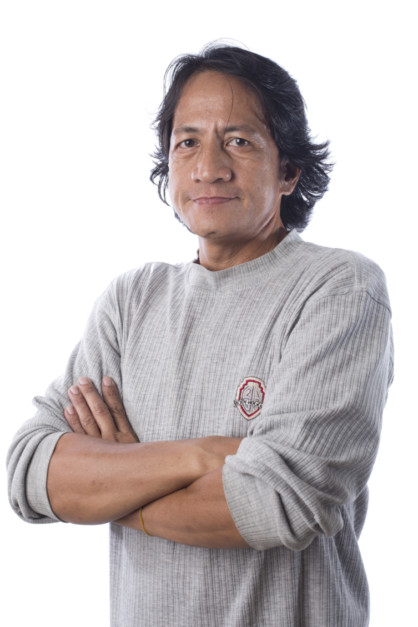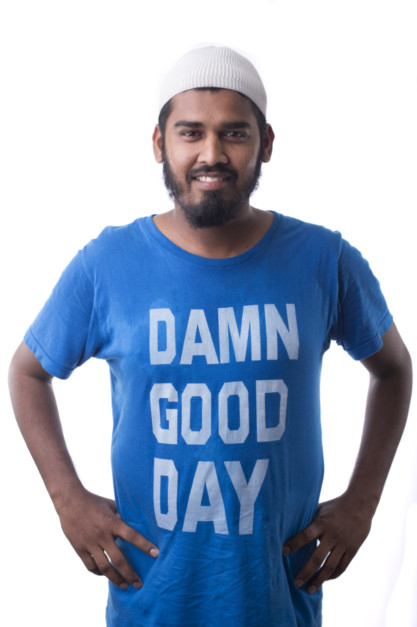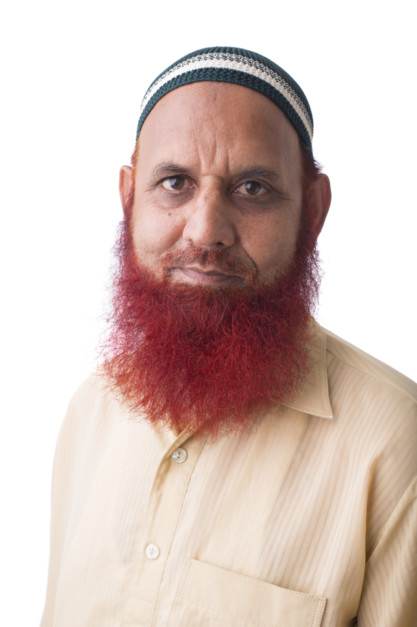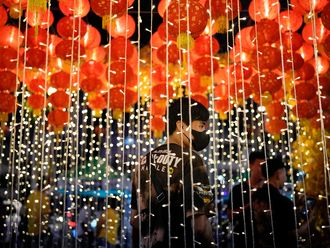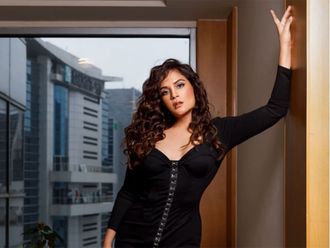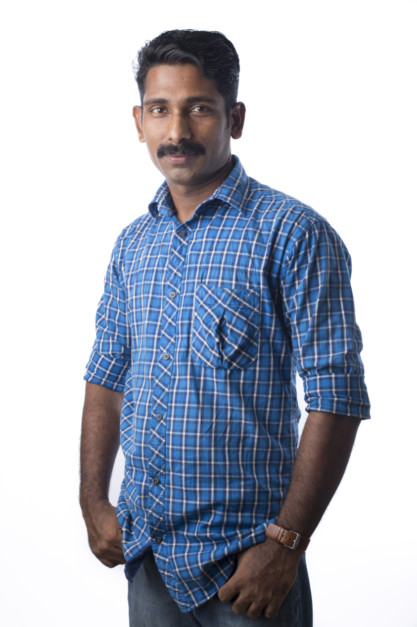
Dubai’s bustling art quarter of Alserkal Avenue is located in Al Quoz, an area which also houses many labour camps. Despite being in the same neighbourhood, they are two worlds that seem to have nothing in common. However, a recent project by Gulf Photo Plus (GPP) has brought these two diverse communities together in a unique and beautiful way.
During the recent Eid al Fitr holiday weekend, a group of GPP staff members along with other volunteers visited a labour camp in Al Quoz to take professional portraits of the men who make Dubai possible. They set up a studio in the camp and invited the residents to pose for their portraits. Their printed portraits were presented as gifts to the men, and they were also given access to the digital images to enable them to share the pictures with their families and friends.
The project, however, was not just about photography and visual imagery. It went deeper to construct portraits that reflected various dimensions of the personalities and the lives of these men. During the photo sessions, the volunteers asked the workers questions about their joys and sorrows, dreams and desires. And the portraits along with their responses to these questions are now being displayed at an exhibition at GPP, titled “Constructing Portraits”.
The people that this show is about are usually seen in uniforms, working at construction sites and other projects in the heat and dust of the city. But in the portraits they are smartly dressed in casual or formal clothes, and they look relaxed and happy as they strike fun poses for the camera. The pictures together with the words present portraits of these men that go beyond their identity as electricians, welders, carpenters, construction labourers and technicians to look at them as husbands, fathers, sons, achievers and dreamers.
The exhibition is unusual, and so was its opening. The opening was held on a Friday afternoon, and the men were invited to attend. There was excitement in the air as they spotted their portraits on the walls, happily pointed them out to their friends, and gleefully posed for pictures next to their own photographs.
They also enthusiastically participated in a video session, answering questions such as whether they think they are handsome, with a confident yes. The video is also part of the exhibition giving visitors a chance to get to know these people better.
The questions that the men were asked were: “What is your proudest achievement?”; “What is your happiest memory?”; “Who is your hero and why?”; “What do you enjoy doing on your days off from work?”, and “If you could do any other job, what would it be?”. Their responses are honest, profound and moving. They convey the pride these men take in their work, their commitment to their families, their determination to improve their lives, the joy they take in the simple pleasures of life, the dreams they have for the future and the spirit with which they embrace what life has offered them.
High on the list of their proudest achievements are things such as getting a job in Dubai, making their parents happy, taking care of their families, educating their children, building a house back home and doing a good job at work. Other achievements mentioned by the men include sending their parents on haj, competing at a national level in sport events in their home country, playing for the camp’s cricket team, getting married to the woman they love, successfully mediating in a family dispute and improving their qualifications or work skills.
The memories they cherish the most are of the birth of their children, of time spent with their families, of their carefree childhood days, of falling in love or being voted the best employee in the camp. But there is also a young construction labourer, Anil Kumar, who says, “Every day is the happiest day of my life; I find happiness in almost everything because I am an optimistic person.”
Like most of us, the things they look forward to on their day off include speaking to their families on the phone, tidying up their rooms, watching movies, listening to music, cooking something special, playing cricket or football with friends or going to the beach. But there are some men who prefer to spend their day off studying to improve their qualifications or their English proficiency.
When asked to name their heroes, some of the men picked famous cricketers, film stars and political leaders from their countries. Others mentioned god or their parents, siblings and spouses. But many of them believe that they are themselves heroes because they are working hard to support their families.
Their dream jobs include running their own businesses, being a photographer or pilot who travels the world, being a cricketer, a singer, a hip-hop dancer or a motorcycle stuntman. It is touching to see that many of the men dream of serving their country by joining the army or the police or having a job where they can help those who are less fortunate than them. Some have ambitions of being politicians, while others are content to do any job that helps them to provide well for their family.
“This exhibition emphasises our common ground, moving beyond the boundaries of nationality, language and job description to instead celebrate the commonalities of personal joys, achievements and hopes for the future that connect us all,” Mohammed Somji of GPP says.
Jyoti Kalsi is an arts enthusiast based in Dubai.
“Constructing Portraits” will run at GPP, Alserkal Avenue, until August 31.



